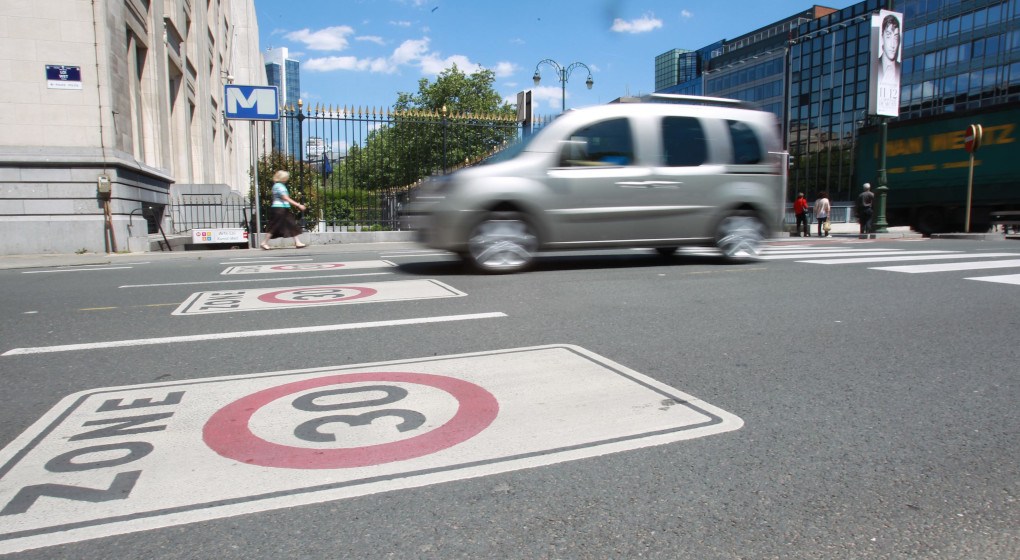The "Stockholm Declaration" aims to halve the number of traffic deaths by 2030, by introducing a general 30 km/h speed limit in all living areas in 140 countries.
The Third Global Ministerial Conference on Road Safety was held on 19 and 20 February 2020 in Stockholm, and resulted in the "Stockholm Declaration," a list of 18 resolutions linking road safety to sustainable development with the aim to achieve global goals by 2030. The agreement is meant to halve the number of traffic deaths by 2030.
One of the conclusions of the 80 ministers and 1,700 experts from 140 countries at the international summit was that a speed limit of 30 km/h should become "the new normal" in all places where cars, cyclists, and pedestrians cross each other. The Flemish Minister for Mobility, Lydia Peeters, however, is hesitant about introducing the measure.
Resolution 11 of the Declaration states that the attendees want to "focus on speed management, including the strengthening of law enforcement to prevent speeding and mandate a maximum road travel speed of 30 km/h in areas where vulnerable road users and vehicles mix in a frequent and planned manner, except where strong evidence exists that higher speeds are safe, noting that efforts to reduce speed in general will have a beneficial impact on air quality and climate change as well as being vital to reduce road traffic deaths and injuries."
“Traffic accidents are the most important cause of death for young people. If we want to do something about it, we should have the guts to take drastic measures,” said Adina Valean, Member of the European Commission of Transport, reports NewMobility.
In Belgium, the Flemish Foundation of Traffic Science (Vlaamse Stichting Verkeerskunde), the Belgian traffic safety institute Vias, the pedestrian movement, and the Cyclist Union have all called on the Flemish government to act and to integrate those international recommendations in the actual traffic policy and introduce the 30 km/h speed limit in all built-up areas.
In 1992, Belgium lowered the general speed in town centres from 60 to 50 km/h. Then in 2005, the first 30 km/h zones started popping up in school areas.
From 1 January 2021, 30 km/h will be the new norm in the entire Brussels Region, following the example of Oslo and Helsinki, the only two European cities where no cyclists or pedestrians died in traffic in 2019.
However, Flemish Minister Peeters is not willing to adapt the speed regulations for the time being, as she first wants the situation to be analysed by the administration. The Flemish citizens, too, do not seem convinced, as a recent survey by traffic safety institute Vias showed that hardly 39% of people were in favour of a general 30 km/h zone.
“The problem is that many roads visually do not correspond with the imposed speed limit,” said Werner De Dobbeleer of Vias. “Driving at 30 km/h on a wide and straight road seems terribly slow. Local authorities could repair the image with trees, greenery, and the construction of curves," he added.
Maïthé Chini
The Brussels Times

